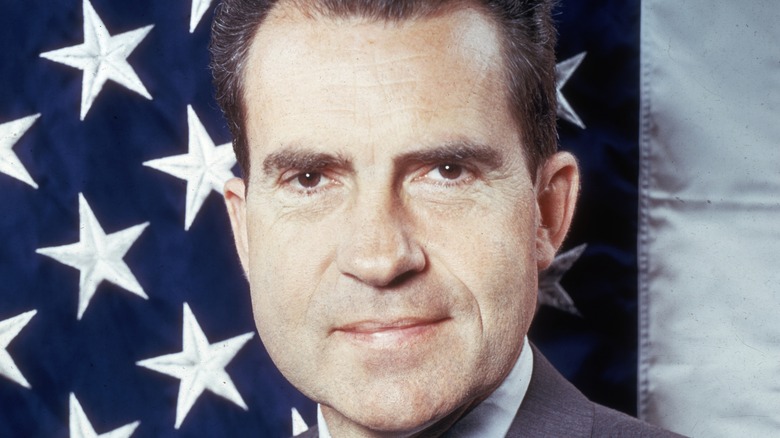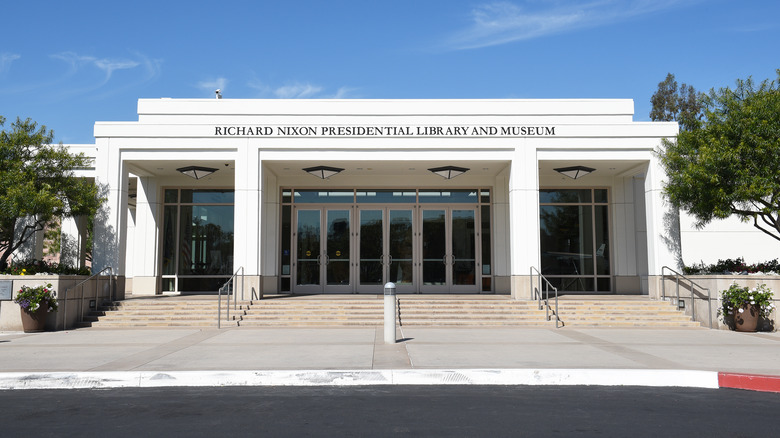What Happened To Richard Nixon's Children?
To have the president of the United States as one's parent would likely come with a heavy amount of baggage thanks to intense amounts of media attention and pressure to behave with propriety. It certainly wouldn't be easy if one were also the offspring of arguably the worst offending president of the 20th century in terms of corruption. Such was the case for Patricia Nixon Cox and Julie Nixon Eisenhower, the two daughters of former U.S. President Richard Nixon.
Each had decent educations, and both were the maid of honor at each other's weddings, which in the case of Julie was to David Eisenhower, son of former general and President Dwight D. Eisenhower (via AARP). Julie was for a time an employee of Curtis Publishing, which owned The Saturday Evening Post, and in an extensive effort to defend her father from the Watergate scandal, she conducted more than 120 interviews across the country by the time of his resignation (via Encyclopedia.com). Afterward, the two sisters, now grandparents (Julie also published several books in the following decades), continued trying to preserve their father's legacy while at times battling one another.
The Richard Nixon Library divided the sisters
According to TIME, the Nixon sisters became embroiled in a feud amongst themselves over how the Nixon presidential Library and Museum should be run, with each wanting different people to be on its board. This was intensified by the prospective contribution to the library of several million dollars left behind by Nixon associate Bebe Rebozo. Rebozo specified that it be used as the sisters saw fit, but the two could not agree on a use for it, and the money remained unavailable for years.
Their feud was settled privately in 2002 per the Los Angeles Times, but insufficient funds plagued the library for several more years. In 2007, the library's funding was federalized per the insistence of Julie, as many other presidential libraries had been. Yet she and the foundation may have regretted Timothy Naftali becoming its first director under the National Archives (via The New Yorker). He made it clear that he hoped to orient the museum toward an impartial framing of Nixon's presidency and remove any biased defenses that remained — something that his successors have made attempts to continue (via Pacific Standard Magazine).

